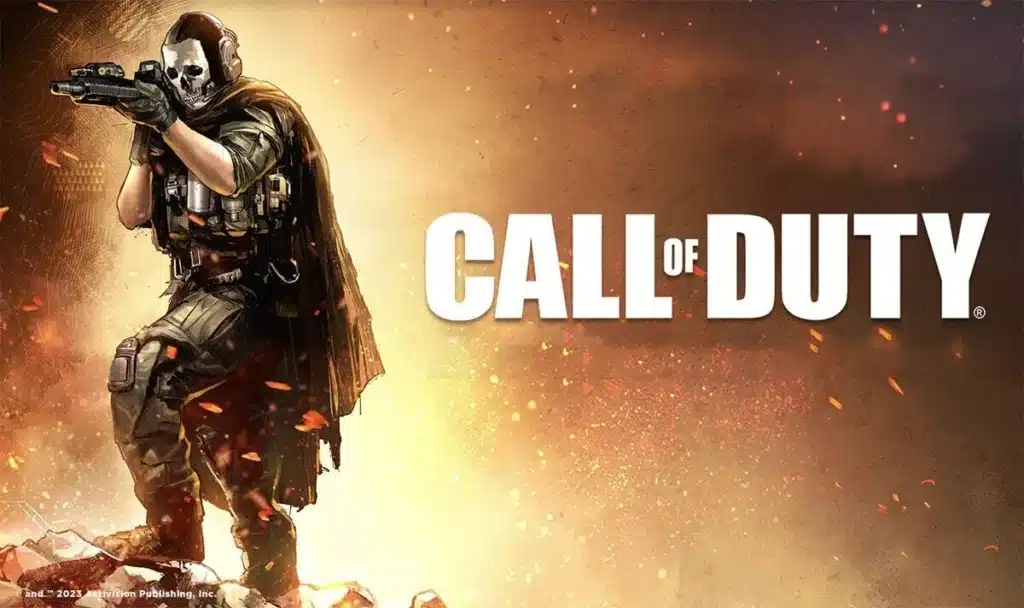Introduction
Skill-based matchmaking (SBMM) in Call of Duty: Warzone has been a hot topic among players since its implementation. While the intent behind SBMM is to create a balanced and fair gaming experience, it has sparked a significant debate within the community. This article will delve into the specific issue of SBMM in Warzone, exploring its history, mechanics, impact on players, and the ongoing controversy surrounding it.
The Origins of Skill-Based Matchmaking
Skill-based matchmaking is not a new concept in online gaming, but its application in Warzone has been particularly notable.
Early Implementation
SBMM was first introduced in Call of Duty games to ensure that players of similar skill levels were matched against each other. The goal was to create a more competitive and fair environment, reducing the likelihood of new or less skilled players being dominated by veterans.
Introduction to Warzone
When Warzone launched in March 2020, SBMM was implemented as a core component of the matchmaking system. Given Warzone’s status as a free-to-play battle royale game, Activision aimed to retain a broad player base by making the game accessible and enjoyable for players of all skill levels.
How Skill-Based Matchmaking Works
Understanding the mechanics of SBMM is crucial to appreciating its impact on the Warzone experience.
Player Skill Rating
SBMM relies on an internal ranking system that evaluates players based on their performance. This includes metrics such as kill/death ratio (K/D), wins, and overall gameplay behavior. Each player is assigned a skill rating that adjusts dynamically based on their in-game performance.
Matchmaking Process
When a player queues for a match, the SBMM algorithm seeks out other players with similar skill ratings. The system prioritizes creating balanced matches over minimizing wait times, which can sometimes result in longer queue times for high-skill players.
The Impact on Casual Players
One of the primary criticisms of SBMM in Warzone is its effect on casual players who play the game for fun rather than competition.
Increased Difficulty
For casual players, SBMM can lead to matches that feel increasingly difficult. As they improve and their skill rating rises, they are pitted against progressively tougher opponents. This can create a cycle where casual players face more skilled adversaries, making it harder for them to enjoy the game without feeling outmatched.
Diminished Enjoyment
Many casual players have reported that SBMM reduces their enjoyment of the game. The pressure to perform well and the constant challenge of facing skilled opponents can lead to frustration and burnout. This has sparked debates about whether SBMM should be adjusted to better accommodate different player types.
The Impact on Competitive Players
While SBMM aims to create balanced matches, it also has notable effects on competitive players who seek high-level gameplay.
Consistent Challenge
For competitive players, SBMM ensures that they are consistently challenged by opponents of similar skill levels. This can lead to more intense and rewarding matches, as players are pushed to refine their skills and strategies.
Limited Casual Play
However, competitive players often express frustration with the lack of opportunities for casual, low-stakes matches. The constant high level of competition can be mentally exhausting, and the absence of a casual mode means there’s little respite from the intensity.
Community Reactions and Controversy
The implementation of SBMM in Warzone has sparked significant controversy within the community, leading to divided opinions and heated debates.
Support for SBMM
Proponents of SBMM argue that it creates a fairer playing field, allowing players of all skill levels to enjoy the game. They believe that without SBMM, new and less skilled players would be consistently overwhelmed, leading to a decline in the player base.
Criticism of SBMM
Opponents, on the other hand, claim that SBMM ruins the casual gaming experience and increases frustration for both casual and competitive players. They argue that SBMM prioritizes player retention over player satisfaction, ultimately harming the game’s long-term health.
Developer Response and Adjustments
Activision and Infinity Ward have addressed the SBMM controversy in various ways, attempting to balance the system to satisfy the player base.
Official Statements
The developers have acknowledged the concerns surrounding SBMM and have stated that they are continually refining the system to strike the right balance. However, specific details about the algorithm and its adjustments are often kept under wraps, leading to speculation and skepticism within the community.
Experimental Modes
To address the criticisms, the developers have introduced experimental modes and playlists that adjust or remove SBMM. These modes provide a different experience, allowing players to enjoy the game without the constraints of the standard SBMM system.
Alternatives to Skill-Based Matchmaking
Given the controversy, some players and experts have proposed alternatives to SBMM that could potentially address the concerns raised by the community.
Connection-Based Matchmaking
One alternative is to prioritize connection quality over skill rating, ensuring that players have low-latency matches. This could lead to a more enjoyable experience, as players would not have to deal with lag or connectivity issues, even if the skill levels in matches are more varied.
Hybrid Systems
Another proposed solution is a hybrid matchmaking system that combines elements of SBMM and connection-based matchmaking. This approach could offer a middle ground, balancing competitive fairness with enjoyable gameplay for all skill levels.
The Future of SBMM in Warzone
As Warzone continues to evolve, the future of SBMM remains a topic of interest and concern for the community.
Ongoing Adjustments
Developers are likely to continue tweaking SBMM based on player feedback and gameplay data. The goal is to find a system that maintains competitive integrity while enhancing the overall player experience.
Community Involvement
Increased transparency and community involvement in the decision-making process could help bridge the gap between developers and players. Open communication and collaboration may lead to solutions that better satisfy the diverse Warzone player base.
Conclusion
Skill-based matchmaking in Call of Duty: Warzone is a complex and contentious issue. While it aims to create a balanced and fair gaming experience, it has also led to significant debate and dissatisfaction among different segments of the player base. Understanding the mechanics, impact, and controversy surrounding SBMM is crucial for appreciating its role in Warzone. As the game evolves, finding the right balance will be key to maintaining its popularity and player satisfaction.



